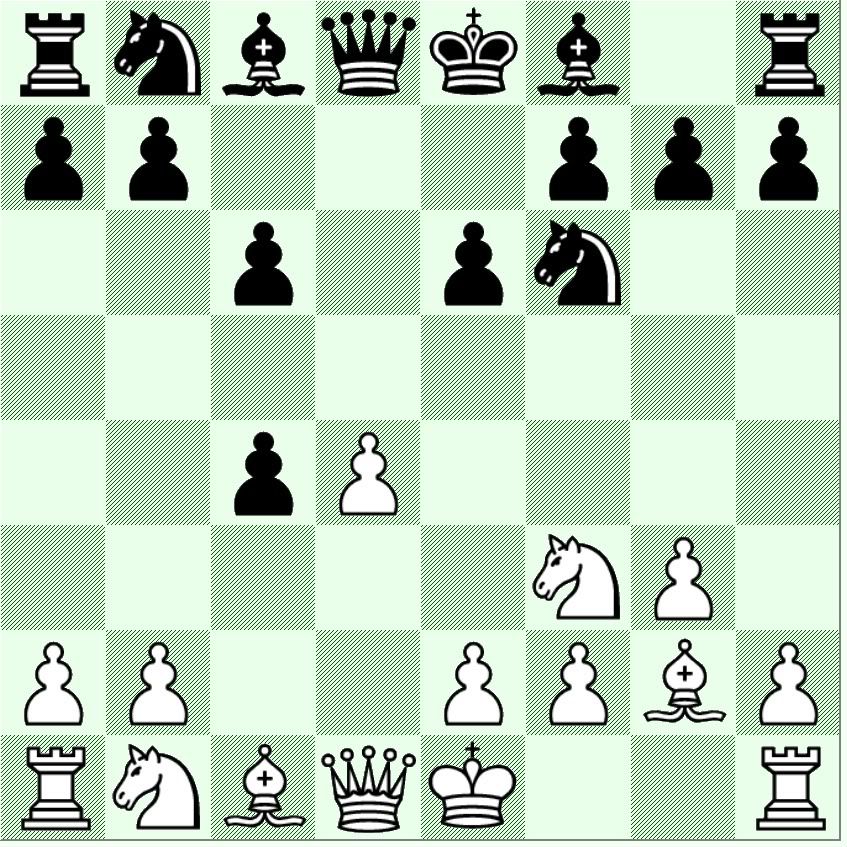What does E04 mean?Chess is a game of nearly infinite complexity, yet endings with six or fewer pieces have been solved and the openings have been analyzed in considerable depth at least since Friar Ruy Lopez (c. 1540-1580). In 1966, Chess Informant began publication twice yearly, later increased to thrice. Each issue of Informant contains the best games from recent tournaments, especially those of theoretical significance; many are annotated by the players. In 1974, Volume C of the Encyclopedia of Chess Openings became the first volume published in what would become the standard five-volume reference work on opening theory.
Overheard at the chess club

Yesterday, the postman brought the second edition of the Encyclopedia on CD. It was part of my prize for placing fifth in Chess Informant's Best of the Best 1000 Reader's Contest.* Along with this electronic version of ECO came several CDs that complete my collection of Chess Informants, except for the most recent volume. With a few mouse clicks, I can check the published theory on a position in the Encyclopedia and in recent grandmaster practice.
Consider a position that is not uncommon for me: 1.d4 Nf6 2.c4 e6 3.Nf3 d5 4.g3 dxc4 5.Bg2 e6
 Five moves present themselves as candidates:
Five moves present themselves as candidates:6.a4
6.O-O
6.Ne5
6.Qc2
6.Nc3
I'm pretty certain that I've played all five. Through my ChessBase database program I can search my Big Database--an old version of this CB product that I keep up-to-date through weekly downloads of The Week in Chess--or ChessBase online. My resident database contains 289 games with this position; ChessBase online has quite a few more with 423.
With this mass of data, how does one find the relevant ones--those worthy of study? I have a select database and electronic opening book of games since 2000 played by masters. Searching it produces a mere 83 games, a far more manageable quantity. But, suppose some of the essential theory concerning this position derives from games played before 2000. I'm back to wading through many hundreds of games.
6.Ne5 takes us from E04 to D15, and possibly D17 or D11. One of the lines given in ECO continues with 6...e6, identified as a novelty when Murey played it against Benjamin in 1986, and published as an annotation to Stohl - Ehlvest, Tallinn 1986 42/471. 6.Ne5 ceases to appears in Informant after 1999, although it has made several appearances since then in high level games. Perhaps at the top levels that line lacks promise for White, even though it is quite playable at my level.
When I faced 6.Ne5 from the Black side, I lost on time in a bishop versus knight endgame where I had a slight edge. When I played it as White, I blundered away a rook in the late middlegame.
6.Qc2 is rare, and not the choice of the strongest players. My only foray with it led to victory in a three minute game on Playchess last August.
6.Nc3 is popular, but according to my CB Opening book has an inauspicious record for White. My score over five games is abysmal--20%.
My database of online games reveals that I played 6.a4 most often a few years ago, and 6.O-O most often in recent years. In both cases, I have scored well above average: 64% (eleven games) and 71% (nineteen games), respectively.
Informant 103/326 is the game Pashikian-Meier, Martuni 2008, which strangely is not found in the ChessBase databases. Martuni 2008 was the Lake Sevan International Chess Tournament pitting some of the strongest young Armenian players against players invited from elsewhere. Arman Pashikian won this game and the tournament. Georg Meier lost two games as Black from this position at this tournament, and fragments from both games were published in Informant. In both games, White opted for 6.a4. Ivanchuk also opted for 6.a4 in his first match game against Aderito at Khanty-Mansiysk (Informant 101/383).
My favored choice in recent years, 6.O-O was Peter Svidler's choice against Vallejo-Pons in the 2007 Monaco Rapid event. A portion of this game was published as Informant 102/(361).
With ChessBase I can find more games; with electronic versions of the Encyclopedia of Chess Openings and Informants, I can find the most significant games annotated by leading theorists.

*The contest winner was Russ Brown whose recently released CD, The Fugitive Peace, I am happy to recommend. Some reviews of the album note that his music starts good, and gets better the more you listen. That's certainly the kind of quality I would expect from a fellow reader of Chess Informant! I bought the album last week, listened to it three times through that day, and have it playing again now.
ECO Code is a trademark of Chess Informant














Thanks and welcome.
ReplyDeleteWow, I can't seem to find the ECO on CD for sale anywhere. Any possibility they yanked it from the market for some reason?
ReplyDeleteIt seems unavailable at present. My hunch is that they are revising so that it is up-to-date and compatible with ChessBase. My version is designed for Chess Informant Expert, which is also no longer available. Moreover, the latest issues of Informant are not fully compatible with CIE.
Delete